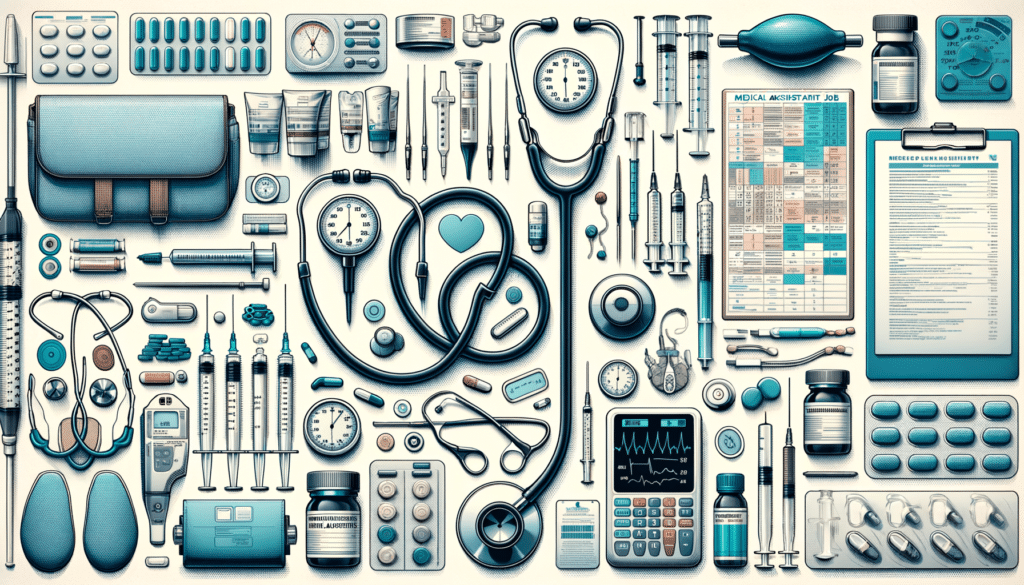The Role of Medical Assistants in Healthcare
Medical assistants play a crucial role in the healthcare system, serving as the backbone of many medical practices. They are responsible for both administrative and clinical tasks, which can vary significantly depending on the healthcare setting. In a typical day, a medical assistant might find themselves scheduling appointments, maintaining patient records, and handling billing and coding for insurance purposes. On the clinical side, they may take patient histories, prepare patients for examinations, and assist doctors during exams. This dual role requires a unique blend of skills, making medical assistants versatile and indispensable members of the healthcare team.
Medical assistants often act as a bridge between patients and physicians, ensuring that communication is clear and that patient needs are met efficiently. This role is particularly important in busy practices where time is of the essence. By handling routine tasks, medical assistants free up physicians to focus on more complex patient care, improving the overall efficiency of the healthcare system.
• Medical assistants handle both administrative and clinical tasks.
• They are essential for maintaining workflow in medical practices.
• They improve communication between patients and healthcare providers.
Educational Requirements and Training
Becoming a medical assistant typically requires a high school diploma or equivalent, followed by a postsecondary education program. These programs, which can last from several months to two years, are offered by community colleges, vocational schools, and universities. They cover a range of topics, including medical terminology, anatomy, and billing and coding, preparing students for the multifaceted nature of the role.
Many employers prefer candidates who have completed an accredited medical assisting program and obtained certification. Certification can be achieved through various organizations, such as the American Association of Medical Assistants (AAMA), which offers the Certified Medical Assistant (CMA) credential. Certification not only enhances a medical assistant’s employment prospects but also demonstrates a commitment to the profession and a high level of competence.
• Postsecondary education is typically required.
• Certification enhances job prospects and demonstrates competence.
• Training covers both administrative and clinical skills.
Job Market and Opportunities
The demand for medical assistants is growing rapidly, fueled by an aging population and the expansion of healthcare services. According to the U.S. Bureau of Labor Statistics, employment of medical assistants is projected to grow much faster than the average for all occupations, with an estimated increase of 19% from 2019 to 2029. This growth presents numerous opportunities for those entering the field.
Medical assistants can work in a variety of settings, including hospitals, outpatient clinics, and private practices. Each setting offers its own unique challenges and rewards. For instance, working in a hospital may involve more specialized tasks and a faster-paced environment, while a private practice might offer a more predictable schedule and the chance to build long-term relationships with patients.
• Employment for medical assistants is projected to grow by 19% from 2019 to 2029.
• Opportunities exist in hospitals, clinics, and private practices.
• Each setting offers unique challenges and rewards.
Challenges and Rewards of Being a Medical Assistant
Like any profession, being a medical assistant comes with its own set of challenges and rewards. One of the primary challenges is the fast-paced nature of the job, which requires excellent time management skills and the ability to multitask effectively. Medical assistants must also be prepared to handle stressful situations, such as dealing with difficult patients or managing multiple tasks simultaneously.
Despite these challenges, the role of a medical assistant is highly rewarding. Medical assistants often report high levels of job satisfaction, stemming from the knowledge that they are making a meaningful difference in patients’ lives. The opportunity to work closely with healthcare professionals and learn from them is another significant benefit, providing valuable experience for those considering further advancement in the healthcare field.
• The job is fast-paced and requires multitasking skills.
• Medical assistants play a meaningful role in patient care.
• There are opportunities for learning and professional growth.
Future Prospects and Career Advancement
The future prospects for medical assistants are promising, with numerous opportunities for career advancement. Many medical assistants choose to specialize in areas such as ophthalmology, podiatry, or pediatrics, which can lead to higher salaries and more specialized roles. Others may choose to advance their careers by pursuing further education and becoming registered nurses, healthcare administrators, or other healthcare professionals.
Continuing education and professional development are key to career advancement in this field. Medical assistants can attend workshops, seminars, and online courses to stay up-to-date with the latest healthcare practices and technologies. Networking with other professionals and joining relevant associations can also provide valuable opportunities for growth and development.
• Specialization can lead to higher salaries and specialized roles.
• Further education can open doors to advanced healthcare positions.
• Continuing education and networking are essential for career growth.





